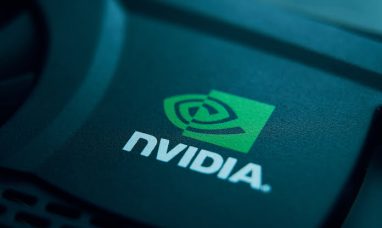Intuit Inc. (NASDAQ:INTU) shares saw their biggest drop in over 18 months after the company revealed a loss of 1 million users of its free TurboTax service, raising concerns about demand for the software.
The Mountain View, California-based company reported that 10 million people used TurboTax for free this year, a decrease of about 1 million compared to last year. Additionally, Intuit lost market share among low-paying customers.
Intuit’s stock fell as much as 9.3% to $600.49 on Friday in New York, marking the largest intraday decline since November 2022. Despite this, the stock had gained 6% this year up until Thursday’s close.
To address more complex tax situations, Intuit has been enhancing TurboTax with features such as online expert assistance and new artificial intelligence capabilities. Despite the drop in free users, Intuit noted that the average TurboTax user spent 10% more on their filing this year compared to last year. Fiscal third-quarter revenue increased 12% to $6.74 billion, surpassing analysts’ estimates of $6.64 billion.
The period ending April 30, encompassing tax season, is crucial for Intuit, the maker of TurboTax and other financial software. Profit, excluding certain items, was $9.88 per share, beating Wall Street’s expectations.
During an earnings call, company executives addressed the decline in users. Keith Weiss, an analyst at Morgan Stanley, inquired about the ability of TurboTax to cater to both high-end and low-end market segments.
Barclays analyst Raimo Lenschow commented that competition for lower-paying and free customers raises “questions that could concern investors.”
Intuit CEO Sasan Goodarzi downplayed the significance of the free user base, stating that some customers are “just really looking for a free tax software — bouncing between platforms — and we are not interested in pursuing those customers.” He also noted that TurboTax gained share among users who typically hire accountants for their tax returns.
Some of the lost customers may have switched to a limited IRS-run pilot for free tax software available in a few states this tax season, which was used by about 140,000 people. Intuit has historically opposed government-provided tax software, arguing it is unnecessary given the availability of free private options.
A company spokesperson indicated that Intuit does not view the IRS pilot as a significant factor in the decline.
Bloomberg Intelligence analyst Niraj Patel suggested that investors might have expected stronger performance from Intuit’s business products, such as QuickBooks Accounting. Sales from the unit containing QuickBooks, targeting small businesses and self-employed users, rose 18% to $2.4 billion, aligning with average estimates.
For the current quarter, Intuit expects total revenue to be around $3.1 billion, exceeding analyst estimates. Profit, excluding some items, is projected to be $1.80 to $1.85 per share for the period ending in July, also above Wall Street’s forecasts.
Separately, Intuit announced that Credit Karma CEO Kenneth Lin will leave at the end of the year. Joe Kauffman, the unit’s president, will succeed Lin effective August 1. Intuit is steering users of Mint, a finance management app acquired in 2009 and recently shut down, toward Credit Karma. The company now anticipates Credit Karma sales to grow about 2% to $1.66 billion for the full year, up from a previous outlook of flat revenue.
Featured Image: Freepik








